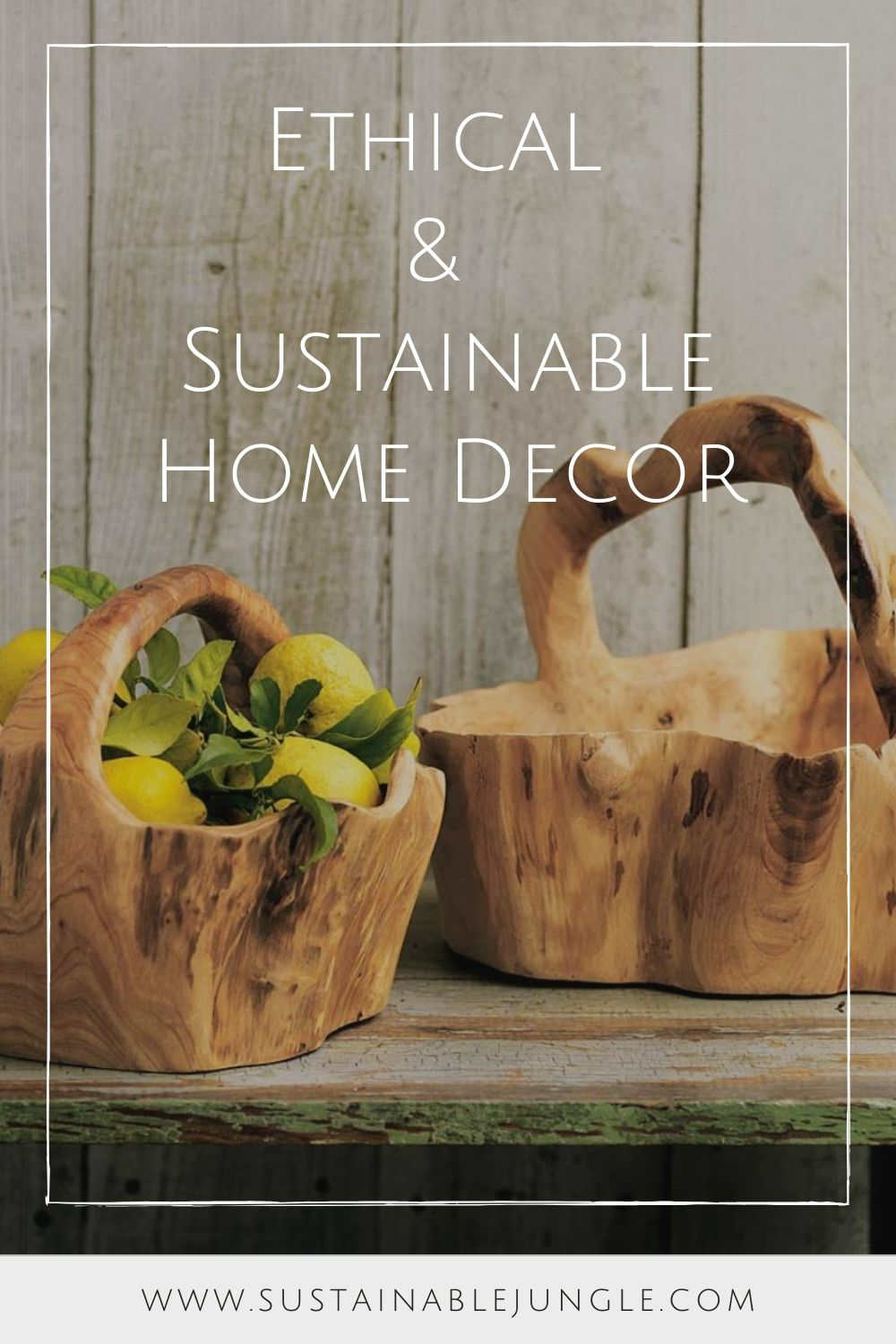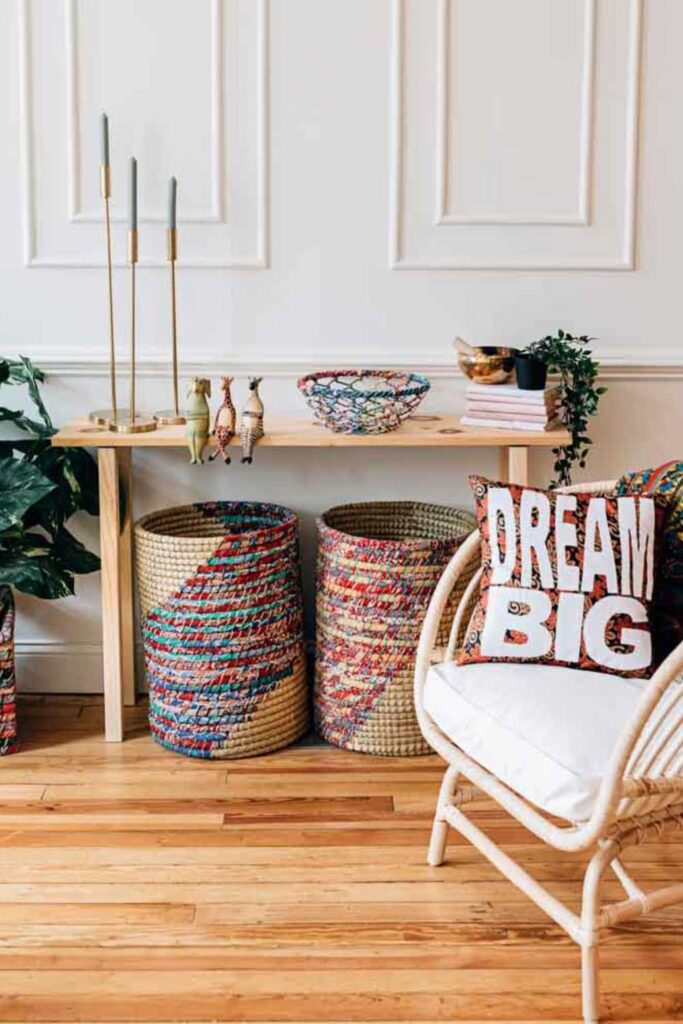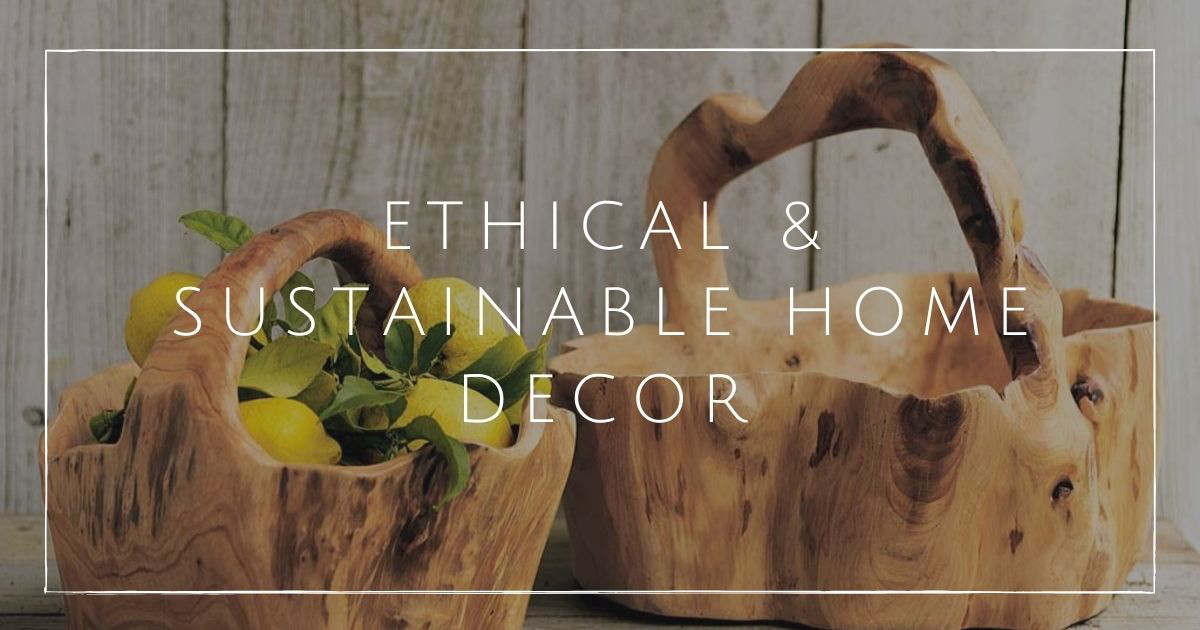A Guide To Ethical Home Decor: Creating A Sustainable And Responsible Living Space
A Guide to Ethical Home Decor: Creating a Sustainable and Responsible Living Space
Related Articles: A Guide to Ethical Home Decor: Creating a Sustainable and Responsible Living Space
Introduction
With great pleasure, we will explore the intriguing topic related to A Guide to Ethical Home Decor: Creating a Sustainable and Responsible Living Space. Let’s weave interesting information and offer fresh perspectives to the readers.
Table of Content
A Guide to Ethical Home Decor: Creating a Sustainable and Responsible Living Space

The pursuit of a beautiful and comfortable home is a universal desire. However, in a world increasingly conscious of its environmental and social impact, the traditional approach to home decor often falls short. Ethical home decor emerges as a conscious and responsible alternative, offering a path to create aesthetically pleasing spaces while minimizing harm to the planet and its inhabitants. This guide explores the key aspects of ethical home decor, providing a comprehensive understanding of its principles and practical applications.
Understanding Ethical Home Decor
Ethical home decor transcends mere aesthetics, embracing a holistic approach that considers the entire lifecycle of products, from sourcing materials to manufacturing, distribution, and eventual disposal. It prioritizes sustainability, social responsibility, and ethical sourcing, ensuring that the pursuit of a beautiful home does not come at the cost of exploitation or environmental degradation.
Core Principles of Ethical Home Decor
1. Sustainable Materials:
Ethical home decor prioritizes the use of sustainable materials that minimize environmental impact. This includes:
- Recycled and Upcycled Materials: Utilizing discarded materials to create new products reduces waste and minimizes the need for virgin resources.
- Natural and Renewable Materials: Opting for materials like bamboo, cork, and reclaimed wood promotes responsible forest management and reduces reliance on fossil fuels.
- Organic and Biodegradable Materials: Utilizing natural fibers like cotton, linen, and wool ensures biodegradability and reduces the use of harmful chemicals.
2. Fair Trade and Ethical Sourcing:
Ethical home decor champions fair labor practices and ethical sourcing. This involves:
- Supporting Fair Trade Organizations: Purchasing products certified by fair trade organizations ensures workers receive fair wages, safe working conditions, and equitable treatment.
- Investigating Supply Chains: Researching the origins of materials and manufacturing processes to ensure ethical treatment of workers and adherence to environmental regulations.
- Prioritizing Local and Small Businesses: Supporting local artisans and small businesses promotes economic development and fosters sustainable practices within communities.
3. Environmental Responsibility:
Ethical home decor emphasizes minimizing environmental impact throughout the product lifecycle:
- Energy-Efficient Manufacturing: Choosing products manufactured with energy-efficient processes reduces carbon emissions and promotes sustainability.
- Sustainable Packaging: Opting for minimal and biodegradable packaging reduces waste and minimizes environmental pollution.
- Responsible Disposal: Choosing products designed for longevity and recyclability promotes a circular economy and reduces landfill waste.
4. Social Responsibility:
Ethical home decor extends beyond environmental concerns to encompass social responsibility:
- Supporting Artisans and Craftspeople: Purchasing handcrafted items empowers artisans and preserves traditional skills, promoting economic empowerment and cultural heritage.
- Promoting Inclusivity and Diversity: Choosing products that represent a wide range of cultures, styles, and perspectives fosters inclusivity and celebrates diversity.
- Supporting Charitable Causes: Selecting products from companies that donate a portion of their profits to charitable causes promotes social good and creates a positive impact.
Benefits of Ethical Home Decor
Embracing ethical home decor offers numerous benefits:
- Environmental Protection: Reduces pollution, conserves resources, and promotes sustainable practices.
- Social Justice: Ensures fair labor practices, empowers artisans, and supports marginalized communities.
- Health and Wellbeing: Creates a healthy and comfortable living space using non-toxic materials and promoting responsible consumption.
- Aesthetic Value: Offers a wide range of beautiful and unique products that reflect sustainable and ethical values.
- Personal Fulfillment: Provides a sense of purpose and satisfaction knowing that home decor choices contribute to a better world.
Practical Tips for Ethical Home Decor
1. Research and Awareness:
- Familiarize yourself with ethical certifications: Organizations like Fair Trade, GOTS (Global Organic Textile Standard), and FSC (Forest Stewardship Council) provide independent verification of ethical and sustainable practices.
- Explore online resources: Websites and blogs dedicated to ethical home decor provide information, product recommendations, and insights into sustainable living.
2. Choose Sustainable Materials:
- Prioritize natural and renewable materials: Opt for bamboo, cork, reclaimed wood, organic cotton, linen, and wool.
- Consider recycled and upcycled materials: Choose furniture made from recycled plastic, reclaimed wood, or repurposed materials.
- Research the source of materials: Ensure materials are sourced ethically and responsibly.
3. Support Fair Trade and Ethical Sourcing:
- Look for fair trade certifications: Choose products certified by organizations like Fair Trade, ensuring ethical labor practices and fair wages.
- Research the supply chain: Investigate the origins of materials and manufacturing processes to ensure ethical treatment of workers and environmental compliance.
- Support local artisans and small businesses: Purchase handcrafted items from local makers and support independent businesses committed to ethical practices.
4. Embrace a Minimalist Approach:
- Invest in quality over quantity: Choose durable and well-made pieces that will last for years to come.
- Embrace a minimalist aesthetic: Focus on functional and timeless designs that minimize clutter and reduce waste.
- Consider repurposing and upcycling: Give old furniture and decor items a new life with creative upcycling projects.
5. Reduce Waste and Promote Sustainability:
- Choose products with minimal packaging: Opt for products with recyclable or biodegradable packaging to minimize waste.
- Consider reusable and refillable options: Choose products with refillable containers or reusable alternatives to single-use items.
- Dispose of products responsibly: Research local recycling and disposal options to ensure proper handling of waste materials.
6. Educate Yourself and Others:
- Share your knowledge with friends and family: Spread awareness about ethical home decor and inspire others to make conscious choices.
- Engage in online communities: Join social media groups and online forums dedicated to sustainable living and ethical consumerism.
- Support organizations advocating for ethical practices: Donate to or volunteer for organizations working to promote sustainable and responsible living.
FAQs about Ethical Home Decor
Q: Is ethical home decor expensive?
A: While some ethically sourced products may have a higher price tag, it’s important to consider the long-term value and sustainability of these investments. Ethical home decor prioritizes quality and durability, leading to fewer replacements and a longer lifespan for furniture and decor.
Q: How can I find ethical home decor products?
A: Research online retailers and local shops specializing in ethical and sustainable home decor. Look for certifications like Fair Trade, GOTS, and FSC, and investigate the origins and manufacturing processes of products.
Q: What are some examples of ethical home decor brands?
A: Many brands are dedicated to ethical and sustainable practices. Research online and explore options like West Elm, Crate & Barrel, IKEA, and local artisans and small businesses.
Q: Can I make my own ethical home decor?
A: Absolutely! Upcycling old furniture, repurposing materials, and creating DIY decor projects are excellent ways to embrace ethical home decor and personalize your space.
Q: Is ethical home decor only for wealthy individuals?
A: Ethical home decor is accessible to everyone. By making conscious choices, prioritizing quality over quantity, and supporting local artisans, you can create a beautiful and ethical home within your budget.
Conclusion
Ethical home decor is more than just a trend; it’s a conscious and responsible approach to creating a living space that reflects our values and minimizes harm to the planet and its inhabitants. By prioritizing sustainability, social responsibility, and ethical sourcing, we can create beautiful and comfortable homes that contribute to a more just and sustainable future. Embracing ethical home decor is a journey of continuous learning and exploration, empowering us to make informed choices that align with our values and create a positive impact on the world around us.








Closure
Thus, we hope this article has provided valuable insights into A Guide to Ethical Home Decor: Creating a Sustainable and Responsible Living Space. We appreciate your attention to our article. See you in our next article!